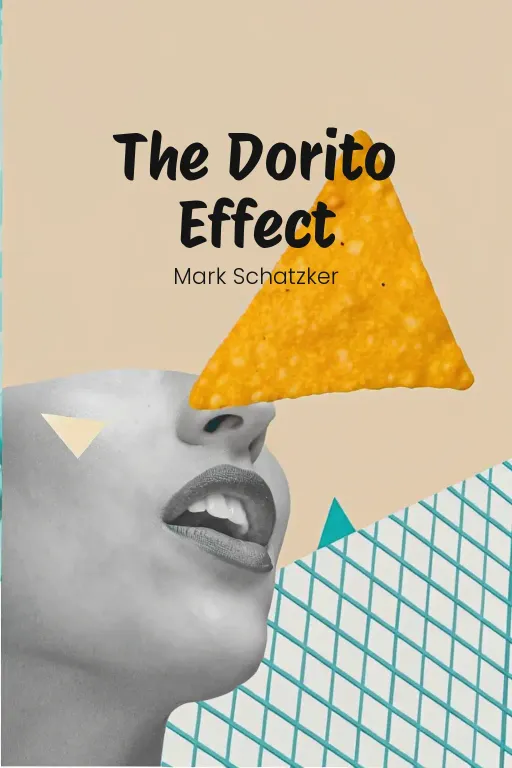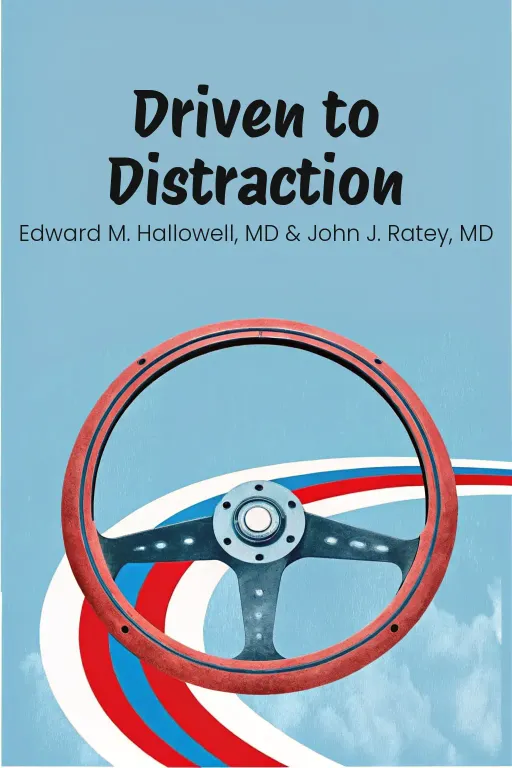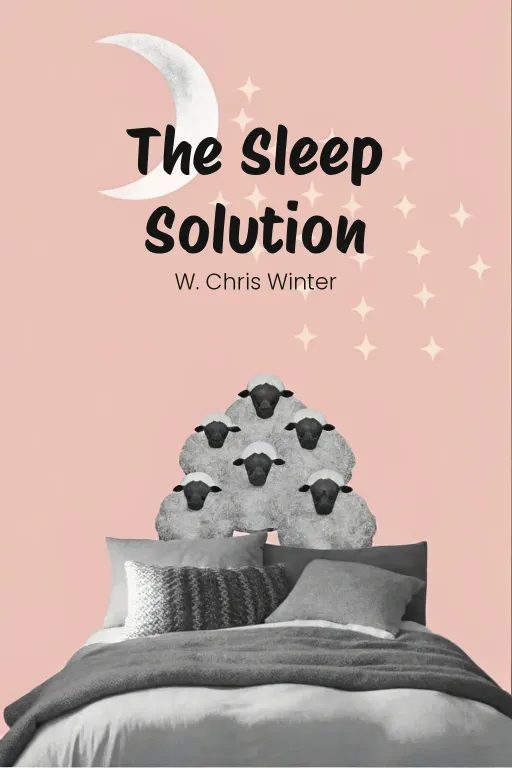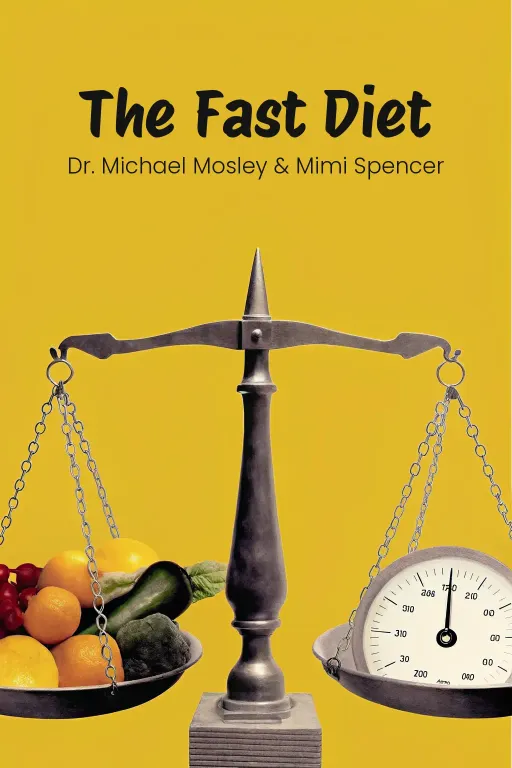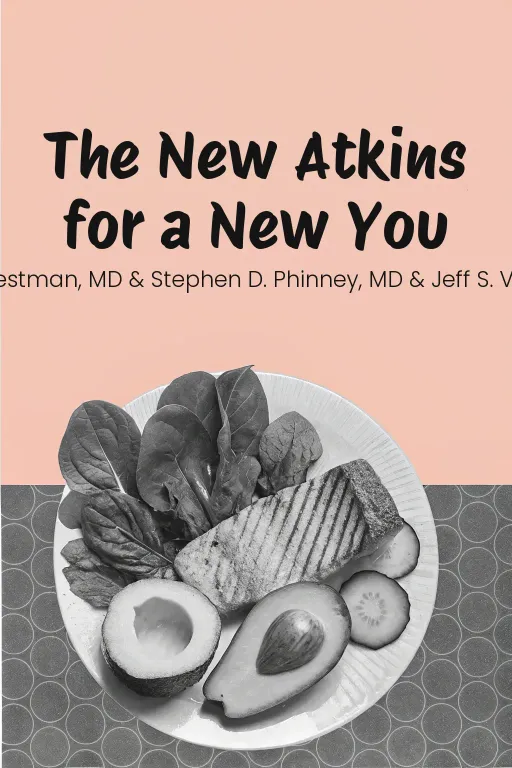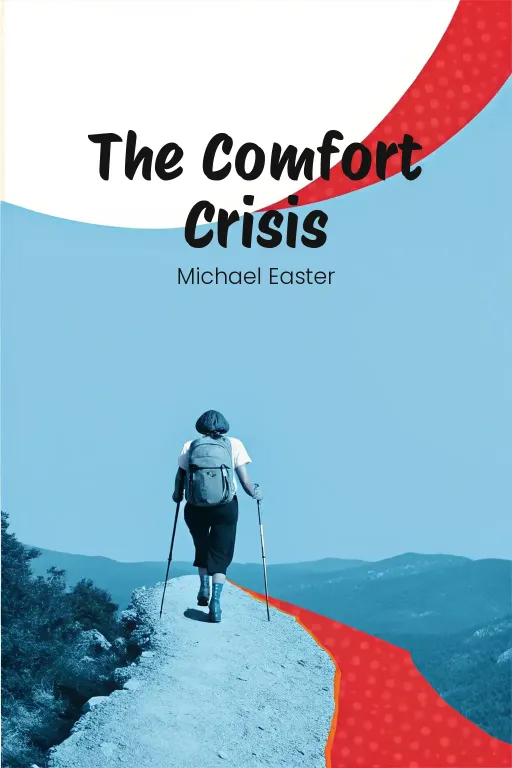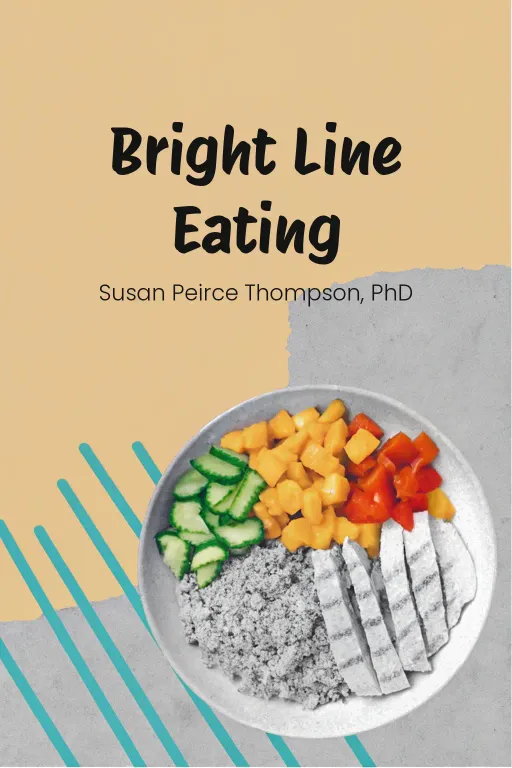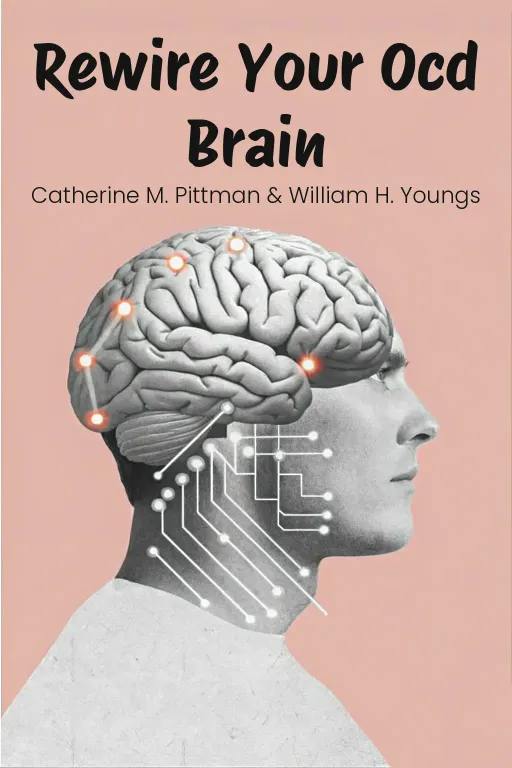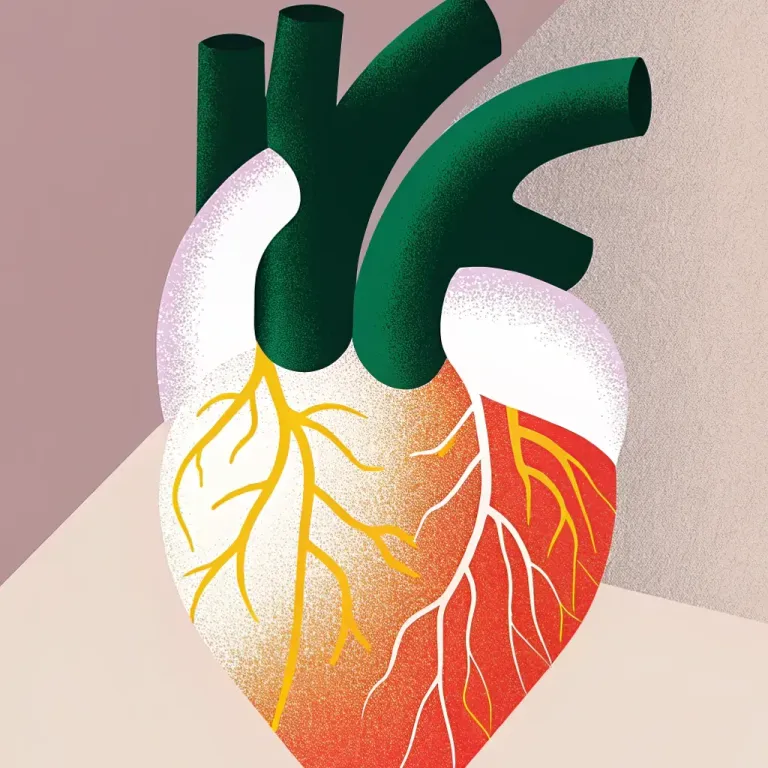
Age Well: Hack Your Gut, Live Longer!
Podcast by Beta You with Alex and Michelle
How to Die Young at a Ripe Old Age
Age Well: Hack Your Gut, Live Longer!
Part 1
Alex: Hey everyone, welcome back! Ever stop to wonder why some folks are still sharp as tacks and full of energy in their 90s, while others, well, not so much? What if the secret to aging well wasn't some expensive cream or crazy procedure, but something living right inside you—in your gut? Michelle: In my gut, huh? So, my shot at a long life depends on, what, a microscopic zoo in my belly? Alex: You could say that! Dr. Steven R. Gundry actually explores this very idea in his book, “The Longevity Paradox”. He argues that our gut microbiome—all those trillions of microbes we share our bodies with—might just be the key to living not just longer, but healthier. By tackling inflammation, choosing the right foods, and making smart lifestyle choices, he believes we can really thrive for decades. Michelle: Okay, interesting. But I bet it’s not as simple as just chowing down on a salad and calling it a day, right? There's gotta be a catch. Alex: You know it! In this episode, we're diving into his plan for longevity with three major takeaways. First, that gut microbiome—it's like your internal control center. More than just digestion; it's a big player in how we age. Michelle: So, if my gut's the pilot, what exactly should I be serving it for dinner? Alex: Ah, that's our second focus—food. Gundry spells out what we should be eating to help our bodies fight aging and what common foods we should avoid. It's about feeding your gut the right "brain food" to keep it happy and in top shape! Michelle: I have a feeling this is where I start to panic. Like, are we talking goodbye to all my favorite snacks? Alex: Potentially some, yes! And lastly, we're talking lifestyle. Besides diet, Gundry stresses the importance of movement and social connections. Turns out, they're not just nice-to-haves, but powerful tools for thriving, not just surviving as we get older. Michelle: So, it's not just endless kale smoothies and probiotics? Exercise and good company get a seat at the table, too? Okay, I'm in. That sounds…doable. Alex: Exactly! Longevity doesn't have to feel like a sacrifice. It's about creating habits that make those extra years really count. Let's dive in and see what that looks like.
Gut Health and Longevity
Part 2
Alex: Okay, so, where were we? Ah, yes, the gut microbiome. It's amazing, isn't it? Gundry presents it not just as supporting the aging-health process, but as the “real” star of the show. He even mentions that 90% of the cells in our body aren't even human but microbial. Can you believe that? Michelle: So basically, we're just walking, talking bacterial farms. Hmm, that's not exactly the most flattering picture of ourselves, is it? Alex: Well, it should be! These bacteria “really” work hard, that is if you treat them nicely. Gundry explains that our gut not only helps digest food, it also regulates our immune system and keeps chronic inflammation in check. This part is important, because untreated inflammations is like there's a fire burning inside your body, right? Which could lead to diseases like diabetes, heart problems, and even certain neurological issues. Michelle: So when people say inflammation is the root of all evil, it's not just a fad? Alex: Not at all! Gundry links the gut directly to this inflammation process. If the gut lining is damaged – what people call leaky gut – harmful substances that should stay in your intestines can seep into your bloodstream. Then the immune system goes into overdrive, and bam – systemic inflammation! Michelle: Let me guess, chips and soda probably aren't the gut's best friends, right? Alex: Precisely. Highly processed food is a major problem. They harm the good bacteria and can lead to unhealthy bacteria growing too much. This throws everything out of balance, and that’s bad for both the gut and you. But hey, it’s not all gloom. Food can also be a powerful way to reverse that damage. Michelle: Alright, let's talk about the how-to. How does Gundry suggest we feed these microscopic critters so they don't turn on us? Alex: It all comes down to prebiotics and probiotics. Prebiotics, basically fiber like you find in asparagus and Jerusalem artichokes, act as food for good bacteria. Probiotics are in fermented food like sauerkraut, kimchi, and yogurt. These replenish the gut with healthy bacteria directly. Together, they create a thriving environment supporting your overall gut health and wellness. Michelle: Fermented foods, huh? Are we bringing back old-school preserving food methods for the sake of science? Alex: That's pretty much it. Dr. Gundry suggests intermittent fasting too, which helps gut health! It gives your digestive system a break, which then triggers autophagy. That's where the body cleans out damaged cells and reduces inflammation. Michelle: I've heard the hype about fasting, but isn't it just a fancy way of saying "skip meals"? Alex: Not “really”. Fasting isn’t just about eating less. It can actually change the variety of bacteria in your gut, make it more resilient, and resilience is key to living longer. Michelle: So it's like doing maintenance for your microbiome. Fixing leaky pipes and tidying up, so they can cope better with everyday life? Alex: Exactly! And there's real-world proof. Gundry talks about studies on centenarians, people who live past 100, and they have relatively young microbiomes. Their gut looks a lot like those in people much, much younger than them. Michelle: Must be nice... How do they do it, though? Alex: Well, it's largely about diet and lifestyle. Think about the Blue Zones, places like Sardinia and Okinawa: people are eating mostly unprocessed foods, lots of vegetables, and staples like miso and kefir. Foods that help good bacteria and keep the bad ones away. Compare that to a typical Western diet that wrecks gut diversity with all its sugar, refined carbs, and unhealthy fats. Michelle: Hold on, if people in Blue Zones don’t obsess over the labels on everything, how are they living so long? Alex: That’s a great point. It’s less about obsession and more about tradition. These food habits are simply part of their culture. When you grow up eating fresh, local, and fermented foods, living a long life is a natural result, not just something you're actively trying to achieve. Michelle: So tell me about Edith Morrey. Her story sounds like the ultimate example of Gundry's advice in real life. Alex: Edith’s story is just incredible. At 90, she impressed Dr. Gundry with how energetic she was, how sharp her mind was, and even how comfortably she could walk in three-inch heels! When he looked into her background, her diet was the foundation of her strength. Michelle: And she was following this nutritionist’s advice, Hauser, right? Alex: Spot on, Gayelord Hauser. Edith’s diet was built on whole, unprocessed foods which gave her a diverse gut. Her story shows how being consistent and knowing what's good for your body can give you amazing results – no exaggeration. Michelle: Okay, let me get this straight, walking gracefully in heels at 90 is amazing. Alex: Absolutely! She embodied what Gundry calls "resilience," which means not just surviving but actually thriving as you get older. Edith’s food choices kept inflammation low, boosted her immune system, and probably gave her a microbiome as diverse as someone much younger. Michelle: And the brain? You mentioned earlier that gut health is tied to brain function. Alex: Exactly! It's all connected through what we call the gut-brain axis - a direct communication line between the gut and the brain. Beneficial bacteria in the gut produce neurotransmitters, like serotonin, that regulate our mood. But if bacteria isn’t balanced, it can cause inflammation that affects the brain. Michelle: So brain fog or even things like neurodegeneration might actually start... in the gut? Alex: Exactly. Gundry mentions that neuroinflammation, which is caused by inflammation signals going from the gut to the brain, can lead to neurodegenerative conditions like Alzheimer’s. Balanced gut bacteria, however, protect the brain by limiting this kind of inflammation. Michelle: Wow, my gut just got a promotion! It went from just helping with digestion to being the CEO of aging!
Dietary Foundations for Longevity
Part 3
Alex: So, as we learn about gut health, it's natural to ask what dietary strategies support it. In “The Longevity Paradox”, Gundry provides a blueprint, focusing on eliminating harmful foods and eating healing ones. Today we're talking about "Dietary Foundations for Longevity," going from specific dietary applications to how diet holistically impacts aging. Michelle: Okay, lay it on me. What can I eat if I want to live forever? And what's off-limits? Please don’t tell me it’s chips, candy, and soda... all my favorites. Alex: Afraid so, those are out. But it's also about what you add in. Gundry stresses anti-inflammatory foods, rich in polyphenols, that are good for your microbiome. Take olive oil. It's like liquid gold for your gut. It's full of monounsaturated fats and polyphenols that fight inflammation and oxidative stress, which speed up aging. Michelle: Drizzle olive oil on everything and live forever? Sounds too easy. Alex: Well, olive oil's just one example. Gundry also likes avocados, green tea, and other whole foods that neutralize free radicals. But most importantly, you should get rid of the foods that hurt your gut, and that means talking about lectins. Michelle: Ah, lectins, getting all the bad press lately. Are they really villains, or are we just making plants the enemy? Alex: It depends. Lectins are proteins in many plants—grains, legumes, tomatoes, eggplants... For some, especially those with autoimmune issues or gut sensitivities, lectins can irritate the gut lining and mess with nutrient absorption. Removing them helps the gut heal, reduces inflammation, and balances the immune system. Michelle: But aren't legumes and whole grains supposed to be good for you? They're always on "heart-healthy" lists. Alex: Yes, they have benefits, but no food is one-size-fits-all. Gundry says modern farming, like hybridization, has increased lectin levels, making them harder on our digestion. Some people tolerate them fine, but others feel much better cutting them out. Experiment and see what works for you. Michelle: So, the gut heals by avoiding lectins. But if you go lectin-free, what do you eat instead? I mean, what do you replace those ingredients with? Alex: Good question. Gundry advises lectin-free alternatives that are also nutrient-dense. Instead of wheat bread, try almond or coconut flour. Swap legumes for leafy greens, cruciferous veggies like broccoli, and low-lectin tubers like sweet potatoes. And don't forget fermented foods with probiotics, to populate the gut with the good bacteria. Michelle: Fermented foods, a.k.a. what people ate before refrigerators existed. Alex: Exactly! Sauerkraut, kimchi, unsweetened yogurt are ancient treasures for the gut. They boost microbial diversity, which is key for longevity. Places with lots of centenarians often have diets rich in fermented foods, research shows. Michelle: Okay, fermented cabbage—got it. Gundry also talks about fasting, right? How does that fit in? Alex: Fasting is critical for gut health because it allows the gut to rest and repair. During fasting, autophagy kicks in to facilitate cleaning. Damaged cells and debris are cleared, and inflammation decreases. Michelle: So, fasting isn’t just a trendy diet. It actually does something? Alex: Right. Gundry doesn’t necessarily advocate extreme fasting, but instead suggests time-restricted eating, or a five-day fasting-mimicking diet. It can balance the gut microbiome and improve your health. Michelle: This all sounds good, but what proof is there that these diet changes actually work? Is there some tangible data? Alex: There's interesting evidence. Look at the Hadza tribe in Tanzania. Their seasonal diet results in incredible microbial diversity. Their gut health is amazing compared to Western societies, and they don't have as many chronic diseases, like heart disease and diabetes. Michelle: So their microbiomes change with the seasons? That must be why their immune systems are so strong. Alex: Precisely. Meanwhile, the typical Western diet—sugar, refined carbs, processed junk—destroys gut diversity, leading to inflammation and faster aging. Michelle: So the Hadza eat natural foods, and we buy supplements to fix what we broke with our diets. It's kind of backwards, isn't it? Alex: It does feel a bit ironic. Gundry tells us not to overthink it—start with whole, unprocessed foods. There are also inspiring stories, like the woman who reversed severe rheumatoid arthritis just by going on Gundry’s lectin-free, anti-inflammatory diet. Michelle: She had RA—constant pain—and changed it with diet?! Alex: Yes, in months, her inflammation went down, and she could move again. By removing grains, legumes, and nightshades that irritated her gut, and eating nourishing, anti-inflammatory foods instead, her body was able to heal. Michelle: Wow. Makes you wonder how many other chronic conditions are tied to what we eat. Alex: Exactly! Gundry says the right diet doesn’t just prevent illness—it can reverse it. It’s profound when you see these principles in action. Michelle: Okay, I’m connecting the dots. The gut is the gatekeeper to everything—immune health, inflammation, even aging. And our food either strengthens that gate, or breaks it down. Alex: Exactly! By focusing on anti-inflammatory, gut-friendly foods, you're building a fortress for longevity, one meal at a time.
Lifestyle and Community in Aging
Part 4
Alex: So, we've laid down the dietary groundwork, but lifestyle practices, that's where we “really” amplify the longevity benefits. It's about zooming out, y'know, seeing the bigger picture. It's not just about food, it's about how you move, handle stress, and, crucially, who you connect with. Our topic today, "Lifestyle and Community in Aging," really ties all of this together for a holistic view on staying well. Michelle: Okay, so we're going beyond what's in the fridge to movement, mindfulness, and... making friends? Sounds a bit like a retirement brochure, doesn’t it? Alex: maybe a little! But exactly! Gundry emphasizes that diet is the foundation, sure, but lifestyle and community are the scaffolding, the steel beams holding everything up. It's not just feel-good stuff either; there's serious science backing how these factors influence everything from your microbiome to your brain health, and even your risk of chronic disease. Michelle: Let me guess, he brings up the Blue Zones, right? Those mythical places where folks live to 100 while dancing and drinking wine? Is that “really” real? Alex: Absolutely! And for good reason. The Blue Zones, like Ikaria in Greece, or Sardinia in Italy, they “really” show what happens when lifestyle and longevity come together. It's not just the Mediterranean diet; it's walking those hills, sharing meals, laughing with family, and staying engaged in life. Michelle: Okay, hang on. "Purposefully engaged"—is that just a trendy buzzword, or is it an actual key to aging well? Does getting involved in your local community garden “really” make a difference? I am skeptical. Alex: No, it's a documented factor! In these communities, people keep strong bonds and participate in traditions, whether it’s harvesting olives or going to festivals. This gives them a sense of belonging and combats loneliness. Gundry argues that loneliness is as dangerous as smoking. Michelle: Seriously? Loneliness is as bad as lighting up? That's a strong claim, Alex. Alex: It is! Chronic loneliness isn’t just a bummer; it’s a stressor that affects your mental and physical health. It actually elevates cortisol, your body's stress hormone. Elevated cortisol can weaken the gut lining, promote inflammation, and compromise your immune system. It creates a vicious cycle that speeds up aging. Michelle: Okay, so loneliness is a full-body stressor. But how do social connections undo that damage? Alex: Social connections can release oxytocin, the "love hormone." Oxytocin lowers cortisol, reduces inflammation, and boosts overall resilience. Gundry connects this to gut health, arguing that social interactions diversify your microbiome. Michelle: Wait a minute, how does having dinner with friends affect gut bacteria? I wasn't aware that was even a thing? Alex: It's fascinating! Being around others exposes you to different microbes, so it’s like a microbial exchange program. Meals eaten together tend to be more balanced and less rushed anyway. It's a positive feedback loop for both brain and gut. Michelle: So, regular potlucks might improve my health? Is this just romanticizing communal living, or are there real benefits? Alex: There's compelling evidence. Gundry cites studies showing that loneliness raises the risk of premature death as much as obesity or smoking. People in strong social networks have lower cortisol, better immune responses, and healthier guts. It's particularly true in the Blue Zones, where group meals and physical activity go hand-in-hand. Michelle: Let's talk about stress. What's Gundry's solution besides moving to Sardinia and retiring early? Alex: His solution is mindfulness practices like meditation and rhythmic breathing. Even short pauses during the day can lower cortisol and shift your body to a parasympathetic, restorative state. Michelle: Parasympathetic… so we're flipping the switch from "fight or flight" to "rest and digest," right? Alex: Exactly. In that state, the gut-brain axis operates more efficiently. It improves digestion, mental clarity, and emotional well-being. Gundry suggests hormetic stressors like sauna therapy or cold exposure to strengthen your body's resilience. Michelle: Sauna therapy sounds great, but cold exposure? Do you mean ice baths? Are we trying to imitate Wim Hof now? Alex: Controlled cold exposure triggers anti-inflammatory molecules and activates pathways that reduce oxidative stress. It's not just for athletes; anyone can use it to reset their system. Michelle: So, saunas and cold showers can help me live longer? Sounds like an interesting kind of self-torture. Is there real evidence behind this? Alex: These practices train your body's stress response, so it can handle challenges more gracefully. They complement movement, the other cornerstone of longevity. Physical activity keeps your heart strong, preserves muscle mass, and supports a diverse microbiome. Michelle: Let me guess, exercise feeds those gut bacteria too? Alex: Absolutely! Physical activity increases short-chain fatty acid production, which feeds the gut lining and reduces inflammation. Even light movement, like after-meal walks, brings big benefits. Michelle: Okay, well, I think of Edith Morrey. She didn’t just survive a fractured hip in her 100s, she thrived! You know, how much of that was her community and lifestyle? It can't have all been genetics? Alex: You're right, a lot! Edith's recovery could have gone very differently, but her family and neighbors created a supportive environment that lifted her spirits and encouraged her to stay active. That sense of belonging and purpose “really” made a difference to her vitality. Gundry sees her story as proof that even when faced with setbacks, resilience comes down to our lifestyle choices and relationships. Michelle: So it wasn’t just her diet; it was about her people. Alex: Exactly. Edith's example reminds us that longevity isn’t just a solo endeavor; it’s a collective one. We’re wired to thrive in connected, meaningful environments where we support each other. Michelle: You know, I actually think I get all this now. It’s not just about perfectly optimized eating or being in the gym 24/7. It’s about weaving these habits into a fulfilling life with people around you. Aging as a team sport, it sounds achievable, no? Alex: Precisely. Gundry’s point is, eat well, move often, and surround yourself with people who lift you up. That’s the blueprint for aging gracefully. It’s a pretty compelling vision, I think.
Conclusion
Part 5
Alex: Okay, so let's bring it all together, shall we? If there's one big idea from The Longevity Paradox to remember, it's this: living longer isn't just about tacking on more years. It's really about making those years count, about really thriving. We've seen, like, how key our gut health is, affecting everything from inflammation to how clearly we think. Michelle: Right, and it really boils down to this: what we eat either feeds that inner world or throws it completely out of whack. Gundry really makes you think about how much control we have over our health, just by choosing anti-inflammatory foods, loading up on nutrients, cutting out lectins, and, you know, adding in those fermented goodies. Alex: Exactly! But food is only part of the puzzle. Those lifestyle pieces—movement, managing stress, staying connected with people—they're all about building up our resilience. Think of them as the mortar holding the bricks together. That's how simple habits turn into something truly life-changing. Michelle: So, for me, the big takeaway? It's not about being perfect. It's about making smart choices, day in, day out. Whether that's swapping out that junk food, taking a walk when the sun sets, or just, you know, enjoying dinner with people you care about. Little things that add up to make a huge difference in the long run. Alex: Precisely. Our bodies naturally want to flourish if we treat them right. So for our listeners, why not pick one simple thing today? Throw a few more veggies on your plate, give intermittent fasting a shot, or just call up a friend. Remember, longevity isn't just something you do, it’s how you choose to live. Michelle: Nicely put. So, here's to healthier, better days, powered by our gut microbiome, of all things. Who knew? Alex: Absolutely, and here's to growing older with grace and energy. Until our next podcast, take good care of yourselves, and each other.
